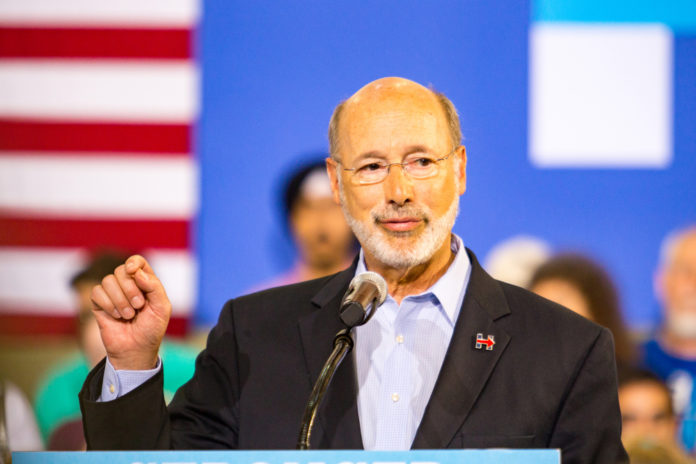On Wednesday, Pennsylvania’s Governor, Tom Wolf, invited House Speaker Paul Ryan (R-Wis) to visit a drug treatment center in his state where many patients use Medicaid to cover their treatment costs. He stated in a letter to Ryan that if President Donald J. Trump repeals and replaces the Affordable Care Act, tens of thousands of Pennsylvanians would lose coverage for addiction treatment.
The Affordable Care Act and Medicaid expansion allowed 63,000 Pennsylvanians with a substance use disorder to access addiction treatment services in the state — an all-important swing state that President Trump won in the general election last November.
Cuts to Medicaid would undermine Pennsylvania’s efforts to provide services to people struggling with a substance use disorder and would force the state “into a horrible choice” of choosing which segments of the population should have access to care and which ones shouldn’t, Gov. Wolf wrote in a letter.
There were more than 3,500 fatal overdoses in Pennsylvania in 2015, marking an increase of more than 20 percent in overdose deaths over 2014, according to data by the Centers for Disease Control and Prevention. According to Gov. Wolf, the number of fatal overdoses in 2016 is expected to be higher than 2015. The most frequently identified drug in toxicology reports in 2015 was heroin. The second-most identified drug in people who died from an overdose was fentanyl.
Gov. Wolf called a Joint Session of the General Assembly to address the problem last September and signed five new bills into law last November. Senator John Wozniak has stated that the crisis in Pennsylvania needs to be addressed on “multiple levels,” each of which would be addressed by the new initiatives undertaken by the state.
The new bills that Gov. Wolf signed into law focus on adding restrictions to physicians when it comes to prescribing opioids to minors, establishing a curriculum in academic and training facilities that focuses on providing medical training related to opioids, requiring continuing education in pain management, addiction, and drug dispensing, restricting the duration and dosage of opioid prescriptions dispensed at emergency departments and urgent care clinics, and creating drop-off locations for unwanted or expired prescription drugs.

Pennsylvania’s Physician General, Dr. Rachel Levine said the state is taking an “all hands on deck” approach that involves multiple state agencies including the Department of Human Services, the Department of Drug and Alcohol Programs, the Department of Corrections, Department of State, and law enforcement agencies.
“This is a major priority for Gov. Wolf and the administration,” Levine said.
Gov. Wolf said in a statement that the new laws are indicative of his commitment to “help the victims of substance use disorder” and the communities that have been affected by the surge in opioid-related deaths in Pennsylvania.
Levine signed two standing order prescriptions for naloxone since 2015. The first was for first responders, who “in the last two years … have saved over 2,200 lives using naloxone.” And last October she signed a standing order prescription to the public to get naloxone at pharmacies.
“Naloxone is necessary but not sufficient,” Levine said, adding that the state has instituted a “warm handoff” program where patients who are admitted into emergency departments can receive a facilitated referral for substance abuse treatment.
White males between the ages of 30 and 39 composed 15 percent of the total number of fatal overdoses in 2015. Yet this group only makes up 4.7 percent of the state’s total population. Whites males accounted for 67 percent of opioid-related fatal overdoses in 2015, and whites, in general, accounted for 76 percent of the opioid-related overdose deaths. African-Americans, which make up 11.6 percent of the state’s population, accounted for 14 percent of deaths related to… (continue reading)
















